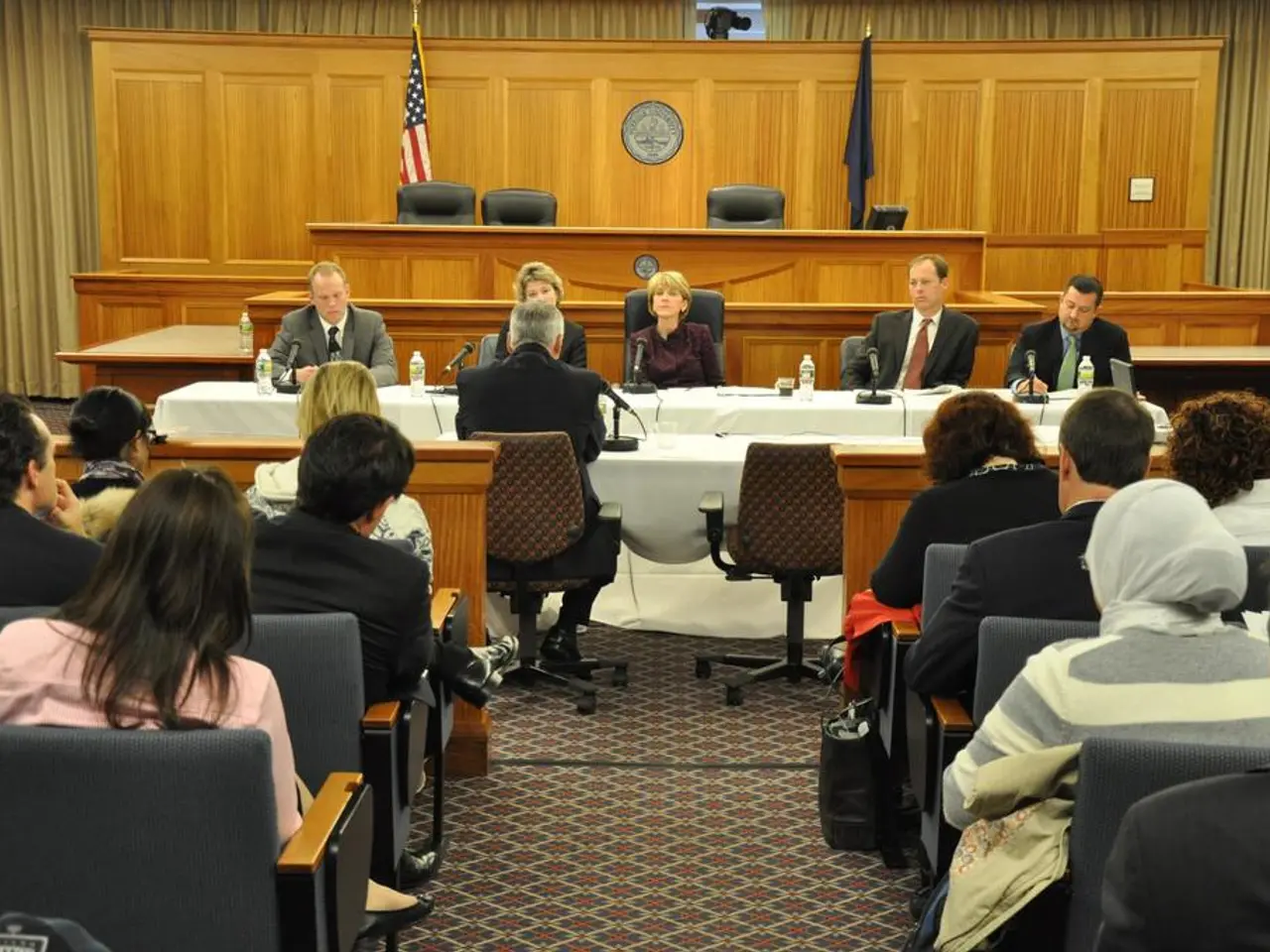Trump indicates possibility of meetings with Russian and Ukrainian heads of state
The ongoing negotiations between Russia and Ukraine regarding a ceasefire and a potential meeting of their leaders, following U.S. President Donald Trump’s envoy Steve Witkoff’s engagement with Russian President Vladimir Putin, have not resulted in a concrete agreement or ceasefire.
Last week, Trump demanded that Putin strike a ceasefire deal with Ukraine within 10 days, or Russia could face repercussions, including sanctions on Russia and countries that do business with it. That deadline runs out on Friday.
Trump and Putin met in Anchorage, Alaska, in mid-August, with a stated goal of advancing peace talks for ending the war in Ukraine. However, the talks ended without a ceasefire deal or a final peace agreement. Trump emphasized aiming for a full peace agreement rather than a mere ceasefire, aligning more with the Kremlin's position, which seeks a comprehensive deal. Ukraine and European leaders insist that peace talks must start with a ceasefire first, something not yet secured.
Trump expressed a desire to see a ceasefire rapidly, though he acknowledged that it might not happen immediately. Ukrainian President Volodymyr Zelensky, while emphasizing the need to stop the violence quickly, called for a follow-up meeting involving all three leaders (Trump, Putin, Zelensky). Zelensky also highlighted ongoing Russian strikes on the day of the talks, underscoring the challenge of reaching peace without a ceasefire agreement.
Putin’s statements post-meeting reflected a willingness to move forward peacefully but emphasized settling “root causes” of the crisis first. The Kremlin confirmed that a future three-way summit involving Zelensky was not discussed at the Alaska meetings. Putin portrayed the talks as frank and substantive, moving closer to "necessary decisions," though he did not announce concrete progress toward ending hostilities.
In recent weeks, Trump has grown irritated with Putin over Russia's continued attacks on Ukrainian cities. The meetings with Putin and Zelenskyy are planned for next week and shortly after, respectively. Trump has suggested a meeting with Russian President Vladimir Putin and Ukrainian President Volodymyr Zelenskyy.
Trump's deadline for Russia to either strike a cease-fire deal with Ukraine or face sanctions is on Friday. The secondary sanctions are still expected to be implemented on Friday. The meeting between Witkoff and Putin was described as "highly productive" by Trump.
Following the meetings, Trump held a call with European leaders, including British Prime Minister Keir Starmer, German Chancellor Friedrich Merz, and NATO Secretary-General Mark Rutte, on Wednesday. Secretary of State Marco Rubio mentioned there will be further discussions and potential announcements regarding the situation. Zelenskyy confirmed he spoke with Trump by phone Wednesday about the Moscow meeting between Putin and Witkoff.
Zelenskyy expressed cautious optimism about Russia's inclination towards a ceasefire, but warned against deception. Trump is preparing for face-to-face meetings with both Putin and Zelenskyy. Overall, the meeting ended without a ceasefire or comprehensive peace deal but left room for further diplomatic engagement.
- The negotiations between Russia and Ukraine for a ceasefire have not yielded a concrete agreement or ceasefire, despite U.S. President Donald Trump’s envoy Steve Witkoff's engagement with Russian President Vladimir Putin.
- The Turkish President, Recep Tayyip Erdogan, has expressed his concern over the ongoing war-and-conflicts in Turkiye, particularly in relation to the political tensions with Russia in the context of the Ukraine crisis.
- In the realm of politics, the Turkish government has been actively engaging in policy-and-legislation discussions, including efforts to bolster the Turkish economy and strengthen its stance in war-and-conflicts regions such as Ukraine.
- Ankara, as the capital of Turkiye, has played a significant role in facilitating diplomatic talks between Russia and Ukraine, aiming to advance the general-news of peace and stability in the region.
- Despite the ongoing deadlock in the Ukraine peace talks, NATO, with the involvement of European leaders, has been closely monitoring the situation and is prepared to take actions should the need arise due to policy-and-legislation decisions regarding war-and-conflicts and sanctions.
- As the war-and-conflicts in Ukraine persist, the Turkish government continues to pursue a careful balance in its politics, between maintaining positive relations with both Russia and the Western alliance, and working towards a peaceful resolution in the broader context of global politics.






